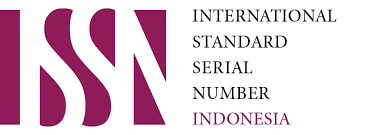Management Rights of Mining Goods in the Perspective of Islamic Economics (Case Study of PT Timah Indonesia)
DOI:
https://doi.org/10.24252/iqtisaduna.v11i1.51981Keywords:
Mining, Good Governance, PT Timah Tbk, Islamic EconomicAbstract
This study aims to analyze PT's governance of tin mining. Timah in Indonesia with an Islamic economic perspective. This objective is based on the fact that Indonesia has a significant tin content, which PT then manages, and the discovery of major corruption cases in the sector. In addition, there are similarities in the objectives of the public goods view between the 1945 Constitution and the principles of Islamic economics. However, several studies have shown that there are still differences in the governance of public goods. The research method used is descriptive qualitative with case studies. From the results of this study, it is concluded that in Islamic economics, tin is a public good, which is the right of all people, whose management is handed over to the state. The governance of tin mining by PT Timah Tbk is governed by the governance of public goods in Islamic economics because PT Timah Tbk is a member of MINID under the auspices of BUMN, whose 65% shares are controlled by the state, so the state has control and supervision in mining governance.Downloads
References
‘Ulya, I., Amilda, A., & Otoman, O. (2024). Timah dalam Pembentukkan Budaya dan Ekonomi Masyarakat Bangka. Tanjak: Sejarah Dan Peradaban Islam, 4(1), 68–79. https://doi.org/10.19109/tanjak.v4i1.22013
Abdussamad, Z. (2021). Metode Penelitian Kualitatif. Syakir Media PressAbdussamad, Z. (2021). Metode Penelitian Kualitatif. Syakir Media Press.
Al-Haritsi, J. bin A. (2006). Fikih Ekonomi Umar bin Al-Khathab (A. S. Zamakhsyari (trans.); 1st ed.). Khalifa.
Al-Qardawi, Y. (n.d.). Daur al-Qiyam wa-al-Akhlaq fi al-Iqtisad al-Islami.
Al-Zuhailî, W. (2004). Al-Fiqh al-Islâmî wa-Adillatuh (1st ed.). Dâr al-Fikr.
Amalia, E. (2010). Sejarah Pemikiran Ekonomi Islam dari Masa Klasik hingga Kontemporer.
Batubara, S. (2017). Kepemilikan Relatif (Al-Milkiyah Al-Muqayyadah) Privat Dan Publik Dalam Ekonomi Islam. JURIS (Jurnal Ilmiah Syariah), 16(2), 173. https://doi.org/10.31958/juris.v16i2.971
Febriani, W., & Taufiq, M. (2022). STUDI TERHADAP PENGELOLAAN HARTA NEGARA MENURUT PERSPEKTIF EKONOMI ISLAM DAN PENERAPANNYA DI NDONESIA. Jurnal Riset Rumpun Ilmu Ekonomi Le, 1(2), 151–161.
Handayani, T., & Huda, N. (2023). Relevansi Kebijakan Fiskal Umar bin Khattab dengan APBN Indonesia 2023. Jurnal Ilmiah Ekonomi Islam, 9(2), 2759. https://doi.org/10.29040/jiei.v9i2.8824
Hanyfah, Z., Oktapia, A., & Tirta, M. (2024). Analisis Perhitungan Kerugian Negara dari Hasil Dugaan Tindak Pidana Korupsi yang dilakukan Oleh PT Timah (Tbk). Journal of Law and Nation (JOLN), 3(Mei), 351–358.
Haryadi, D. (2015). Faktor Kriminogen Illegal Mining Timah Di Bangka Belitung. In Masalah-Masalah Hukum (Vol. 44, Issue 1, p. 52). https://doi.org/10.14710/mmh.44.1.2015.52-58
J.Moleong, L. (2019). metodologi penelitian kualitatif (revisi). PT Remaja Rosdakarya.
kementerian BUMN. (2017). Resmi Dibentuk, Holding BUMN Industri Pertambangan Bidik Masuk Fortune 500 Global Company. Https://Ekon.Go.Id/.
Marroli. (2017). Resmi Dibentuk, Holding BUMN Industri Pertambangan Bidik Masuk Fortune 500 Global Company. Kominfo.Go.Id. https://www.kominfo.go.id/index.php/content/detail/11768/resmi-dibentuk-holding-bumn-industri-pertambangan-bidik-masuk-fortune-500-global-company/0/artikel_gpr
MIN ID. (n.d.). SEJARAH. MIN.ID. Retrieved June 30, 2024, from https://mind.id/pages/history
Nasution, E. M. (2020). Mengelola Tambang Emas di Daerah Kabupaten Mandailing Natal Menurut Islam. IBF:Islamic Business and Finance, 1(1), 79–102.




